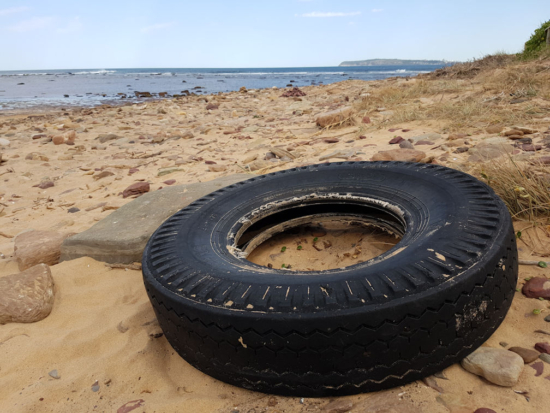TRA addresses India waste tyre figures with call for export rethink
 The prospect of retiring to warmer climates may be enticing, but our tyres shouldn’t end their days abroad (Photo: Stephen Goodchild / Tyre Industry Publications Ltd)
The prospect of retiring to warmer climates may be enticing, but our tyres shouldn’t end their days abroad (Photo: Stephen Goodchild / Tyre Industry Publications Ltd)
India is advocating for a stricter export regime concerning waste tyres, a call that has garnered support from the Tyre Recovery Association (TRA). The Indian Automotive Tyre Manufacturers’ Association (ATMA) has shed light on the scale of repurposing end-of-life whole tyres exported from the UK, prompting the TRA to urge the UK government to take decisive action to halt the environmentally damaging export of baled end-of-life tyres.
According to ATMA, European nations are major contributors to pollution, environmental degradation, and safety risks associated with the large-scale export of end-of-life tyres (ELTs). Recent figures indicate a significant increase in waste tyre imports from developed countries to India, posing considerable environmental challenges for the nation. Anshuman Singhania, chairman of ATMA, expressed alarm over India’s importation of approximately 800,000 tonnes of scrapped tyres between April and November 2023, with the UK identified as one of the primary exporters of ELTs to India.
Data from the UK reveals that the country exports around 300,000 tonnes of end-of-life tyres annually, despite possessing at least 150,000 tonnes of licensed idle domestic recycling capacity. According to figures shared by the TRA, some 10 to 15 per cent of India’s imported ELTs see further use as replacement tyres. The remainder undergoes batch-pyrolysis, a method the TRA considers “outdated” and “highly polluting.”
New classification system
In December 2023, India’s Central Pollution Control Board (CPCB) proposed a colour-coded categorisation system to enhance compliance and incentivise the adoption of new technologies. This categorises the pyrolysis sector ‘orange’, one level below the most polluting ‘red’ category. For the TRA, this classification system represents a “significant step” towards enhancing the operations of licensed plants and cracking down on the most environmentally harmful pyrolysis practices, particularly targeting illegal small-scale operations where a substantial portion of the UK’s ELTs are believed to be processed.
The TRA “welcomes” ATMA’s collaboration with the CPCB and India’s Ministry of Environment, Forest and Climate Change to “recognise the gravity of the situation,” joining forces to implement these new regulations and tackle the significant environmental concerns from the disposal of whole end-of-life tyres which are exported in bales.
UK should develop circular market
“This confirms our long-held suspicions and what many operators have been saying for a long time. While we are grateful to India’s Automotive Tyre Manufacturers’ Association, people should be shocked at how their findings lay bare the inadequacy of UK government’s response to TRA demands for tighter export controls,” says Peter Taylor OBE, secretary general of the TRA. “Now the chair of the ATMA, Mr Anshuman Singhania, is also calling for tyres to be size reduced prior to import to India (in UK terms shredded) to prevent their abuse by an onward market, perhaps the UK government can finally act to update the out of date and failing UK regulatory framework.
“The British government should also listen to Prashanth Doreswamy, president and chief executive officer, Continental Tyres India, who has called for new regulations to be enacted in India to curtail the imports of waste tyres and allow only shred. There is no reason for the UK authorities to continue to dither, they should ensure we only export shredded tyres, grow our own circular environmentally responsible market and follow the very successful Australian example.
“ATMA has exposed the low standards of environmental practices which appear in some parts of their domestic industry. The evidence from them is clear, too many operators in the Indian onward market are not meeting the recognised environmental standards or their equivalence. It is time the UK government woke up and acknowledged that far from tackling this environmental assault they are enabling UK operators to facilitate environmental harm.”
“It is time UK government does the right thing and help India stop these environmental abuses, as India’s manufacturers demand of us,” Taylor concludes.




Comments